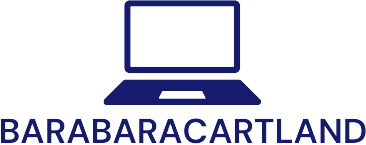Table of Contents
ToggleRunning a business is a wild ride filled with ups, downs, and the occasional surprise audit. Amidst all the chaos, one thing’s for sure: every dollar counts. Business owners often find themselves wrestling with taxes, feeling like they’re in a never-ending game of hide-and-seek with the IRS. But what if there were clever strategies to keep more of that hard-earned cash in their pockets?
Understanding Tax Saving Strategies
Tax saving strategies play a vital role in financial management for business owners. Employing these strategies effectively helps retain earnings and promotes growth.
Importance for Business Owners
Saving on taxes empowers owners to reinvest profits into their ventures. These strategies minimize liabilities, leading to increased cash flow. Business owners gain a competitive edge by utilizing tax deductions and credits. Understanding tax laws and regulations can lead to substantial savings. Effective strategies also enhance financial forecasting by providing clear insights into tax obligations.
Common Misconceptions
Many assume tax saving strategies only apply to large corporations, but small businesses benefit as well. Some believe that tax planning is too complicated, yet it can be straightforward with the right guidance. A common misconception is that all expenses qualify for deductions; however, only specific, business-related expenses do. Additionally, some think tax strategies are only for the wealthy, when in fact, every business owner can leverage available options. This misunderstanding often leads to lost opportunities for savings.
Deductions and Credits

Understanding available deductions and credits helps business owners reduce their tax liabilities and retain more earnings for growth.
Common Business Deductions
Business owners can deduct various expenses directly related to their operations. Operating expenses like rent, utilities, and salaries typically qualify as deductions. Equipment purchases receive beneficial tax treatment through depreciation. Travel costs for business trips are deductible, provided they are properly documented. Meals and entertainment expenses also qualify, though certain limitations apply. Office supplies and software costs fall under deductible expenses too, providing further savings.
Tax Credits for Businesses
Tax credits directly reduce the amount of tax owed, making them valuable for business owners. The Small Business Health Care Tax Credit supports employers offering health insurance to employees. Energy-efficient upgrades can earn businesses credits through the Energy Efficient Commercial Buildings Deduction. Employers hiring from certain targeted groups may qualify for the Work Opportunity Tax Credit. Research and Development Tax Credits incentivize innovation by rewarding companies for developing new products or processes. These credits can significantly lower tax bills, helping businesses thrive.
Retirement Plans
Retirement plans serve as vital tools for business owners to secure their future and minimize tax burdens. Exploring various retirement account options can provide substantial tax advantages.
Types of Retirement Accounts
Several retirement accounts exist for business owners, each offering unique benefits. A Simplified Employee Pension (SEP) IRA allows for significant contributions, with limits up to 25% of compensation or $66,000 for 2023. Solo 401(k) plans cater specifically to sole proprietors, permitting higher contributions totaling $66,000, or $73,500 for individuals aged 50 and older. Traditional IRAs offer tax-deductible contributions, while Roth IRAs allow for tax-free withdrawals in retirement. Business owners should evaluate these options based on income levels and future financial goals.
Benefits of Employee Contributions
Employee contributions can enhance retirement plans and provide tax benefits. Employees can make pretax contributions, reducing their taxable income for the year. This reduction can lead to lower overall tax liabilities for both employees and business owners. Additionally, matching contributions from employers often incentivize employees to save more, fostering a positive work environment. Access to retirement plans can also aid in attracting top talent, as many individuals prioritize companies that support their long-term financial security. With these contributions, business owners cultivate more robust retirement plans while maximizing tax-saving opportunities.
Expense Tracking
Expense tracking remains a crucial element for business owners seeking to optimize tax savings. By diligently monitoring expenditures, they can identify potential deductions and maintain accurate financial statements.
Tools for Effective Tracking
Accounting software simplifies expense tracking for business owners. Programs like QuickBooks and Xero offer features tailored to organizing and categorizing expenses. These tools provide real-time insights, making it easier to analyze spending patterns. Mobile apps enable immediate entry of expenses, ensuring no transaction goes unrecorded. Automated reporting assists in generating financial summaries, allowing for informed decision-making.
Best Practices for Documentation
Maintaining organized records is fundamental for effective expense tracking. Business owners benefit from keeping digital and physical copies of receipts for all transactions. Regularly reconciling accounts ensures accuracy in financial reporting. Setting aside time weekly to review expenses helps identify unnecessary costs and improve budgeting. Storing documentation in dedicated folders aids retrieval during tax season or audits, streamlining the overall process.
Working with Professionals
Engaging with tax professionals enhances a business owner’s potential to maximize savings. Expertise in tax regulations can lead to better tax strategies and avoid costly mistakes.
Choosing the Right Tax Advisor
Selecting a knowledgeable tax advisor plays a crucial role in effective tax management. Consider advisors who specialize in business taxes and possess relevant experience. Assess their qualifications, including certifications such as CPA or EA. Seek recommendations from trusted peers to ensure reliability. Also, ensure that the advisor understands your business structure and goals. Compatibility enhances communication and fosters a productive working relationship.
Benefits of Professional Guidance
Professional guidance offers multiple advantages for business owners. Tax advisors provide insights into complex laws and deductions that may be overlooked. They optimize tax strategies to fit unique business circumstances. With their help, owners can navigate audits with confidence and reduce tax liabilities effectively. Advisors can suggest strategic adjustments, such as timing of income or deductions, to enhance benefits. Regular communication supports ongoing compliance and long-term financial planning.
Implementing effective tax-saving strategies is crucial for business owners aiming to enhance their financial health. By understanding available deductions and credits they can significantly lower their tax liabilities and retain more earnings.
Utilizing retirement plans not only secures their future but also offers immediate tax benefits. Diligent expense tracking and leveraging accounting software can further streamline the process.
Collaborating with knowledgeable tax professionals ensures that business owners navigate the complexities of tax laws confidently. This proactive approach not only fosters compliance but also positions their businesses for sustained growth and success.




